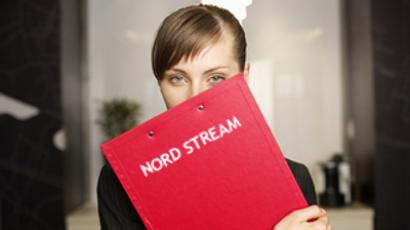‘Nord Stream poses no threat to ecology’
The planned Nord Stream gas pipeline, which will link Russia and the EU via the Baltic Sea, will improve energy security in Europe, says Russia's First Deputy PM Viktor Zubkov, who has paid a working visit to Sweden.
“We're now trying to reach a mutual understanding with all other European countries over the project before the construction begins. We had some discussions with Sweden on this project and I'm sure our Swedish colleagues realise the importance of the pipeline and we will reach an agreement on it soon,” Zubkov said.
According to Zubkov, the Nord Stream project will be top priority for Sweden when it holds the rotating EU presidency.
The First Deputy Prime Minister pointed out that Nord Stream is an economic, not political, project and the considerable work is being done to minimise all risks.
Nord Stream is set to be launched in 2011, but since the recent gas row with Ukraine, Russian-EU projects to bypass the unreliable transit partner have taken on even greater significance.
Nord Stream has a capacity of 55 billion cubic metres of gas with a 100 per cent guaranteed delivery and the ability to supply up to 25 million households in Europe.
“Nord Stream has the advantage that it bridges the gap between Russia’s vast gas reserves and the European market,” says Paul Corcoran, director of finance for Nord Stream AG.
The pipeline will carry natural gas from Russia to Germany by the joint company Nord Stream AG, which is made up of Russia’s Gazprom, Germany’s E.ON Ruhrgas and Wintershall, and the Dutch company,Netherlands Gasunie.
It will consist of three parts: a Russian onshore pipeline, a Baltic Sea off shore pipeline, and further pipelines in Western Europe.
“By 2025 there will be a shortage of about 200 billion cubic metres for the European market. Now Nord Stream will contribute 25 per cent of that shortfall and from customer perspective that’s a strong benefit,” Paul Corcoran says.
Ecology matters are among the main concerns for Europe, but the joint company is fully committed to protecting the Baltic Sea.
“We have met with Gazprom and according to our experts the pipeline poses no threat to the ecological preservation of the sea,” says Igor Chestin from WWF.
There’s also what’s being called the worst financial crisis in a century, but Gazprom is confident its projects will be completed.
“It’s obviously not the best time, but good projects will always find good financing,” says Gazprom’s Deputy CEO Aleksandr Medvedev.













